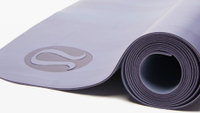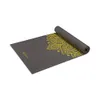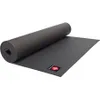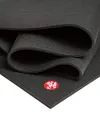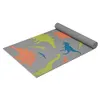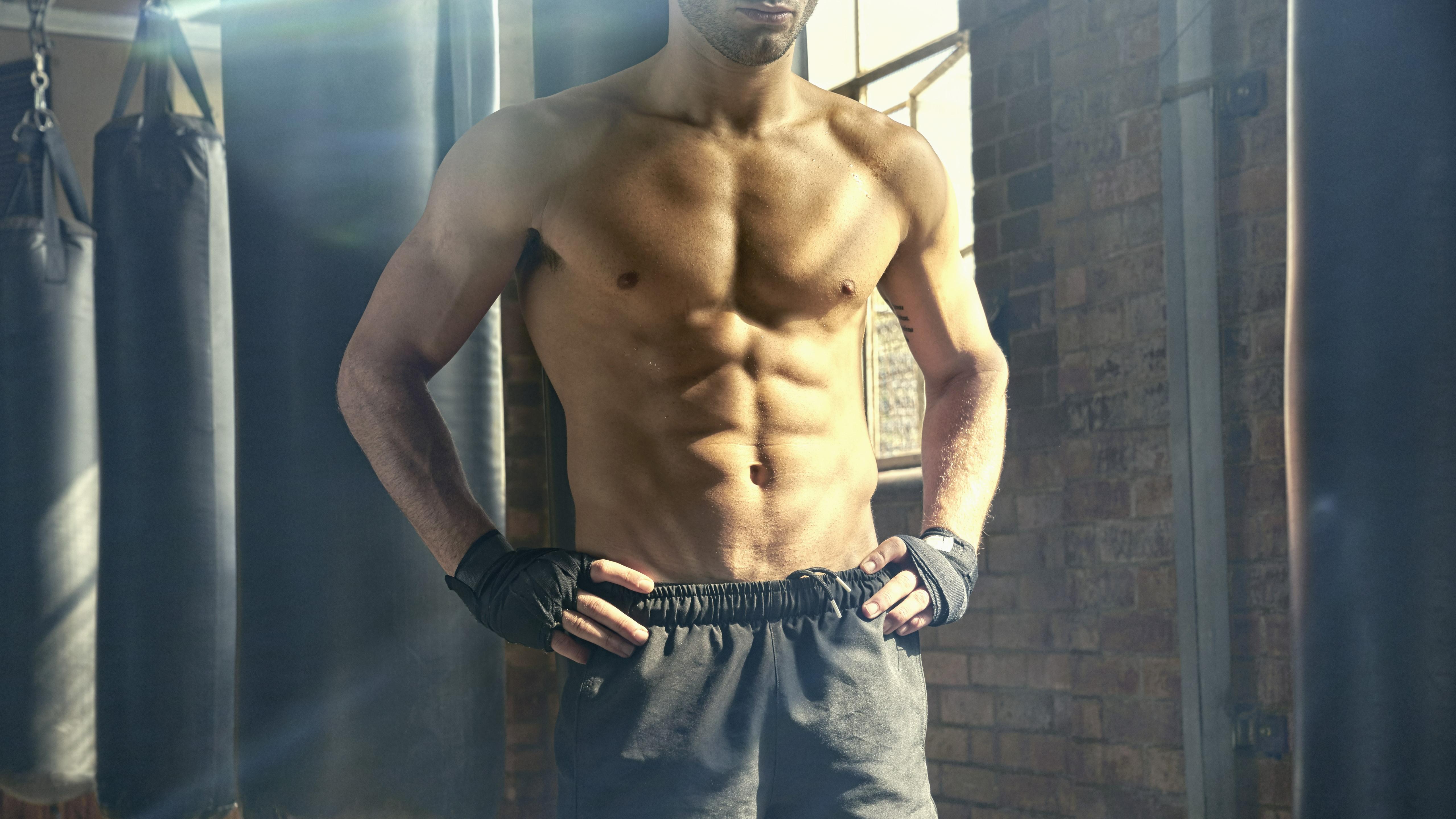
If leg raises are bad for your lower back, there are ways to fix them. Or, you could replace them with the double deadbug instead — a bodyweight abs exercise that helps strengthen your deep core muscles without weights and can easily replace or join leg raises in your workout line-up, depending on your preference.
Thankfully, there’s a multitude of exercises you can do to build a stronger core and, while as a trainer, I typically prioritize big lifts and compound exercises in workout programs, abs exercises are effective and they certainly have a place.
Below, I cover how to do double deadbugs with proper form, the benefits and ways to fix up leg raises if you’re not quite ready to get rid of them just yet.
What is a common mistake when doing leg raises?
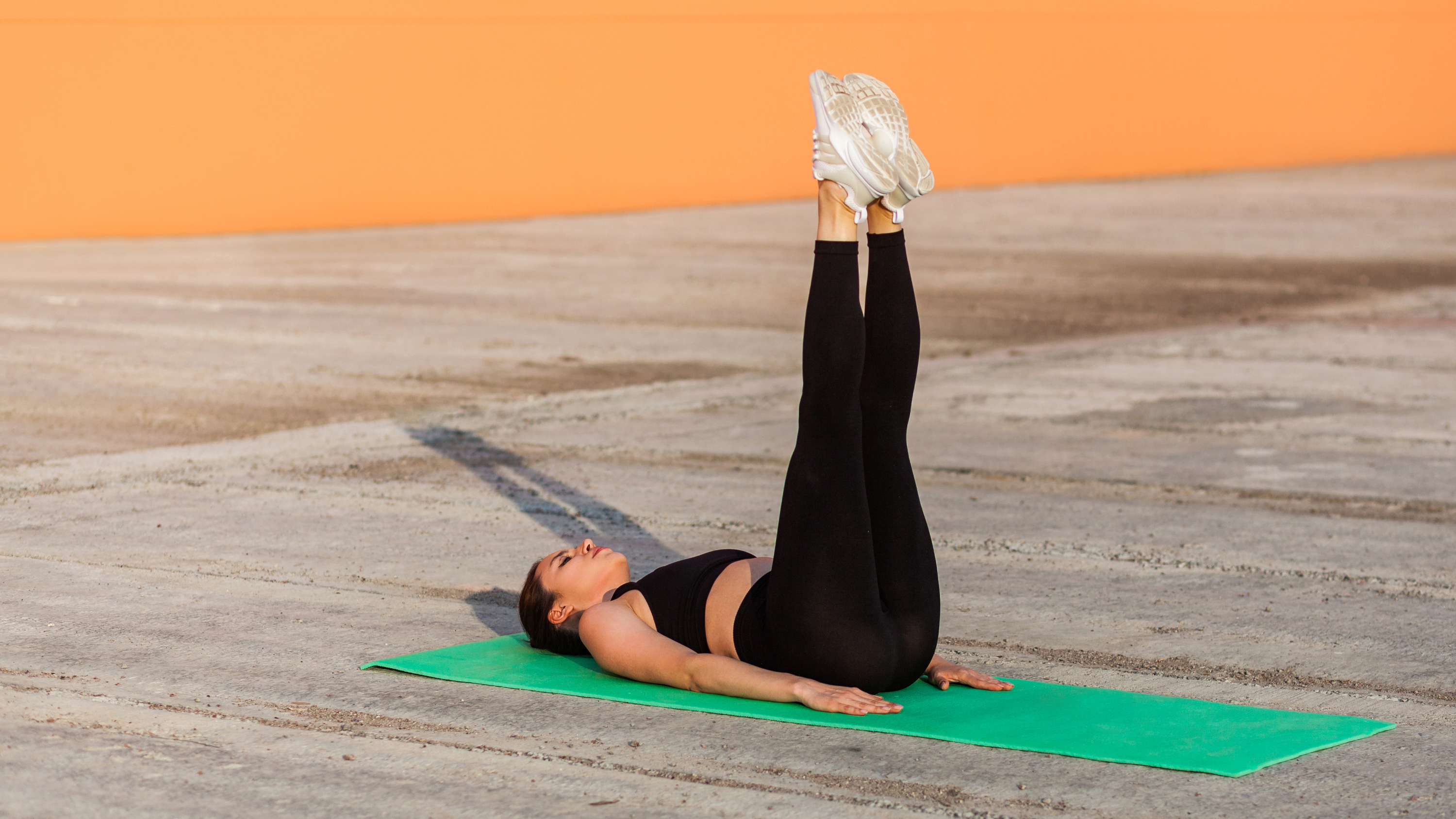
Whether you’re learning how to do hanging leg raises or standard leg raises, proper form is the key to strengthening your core muscles without causing back pain.
Firstly, learning to engage your core properly will help you target the key muscles used during the exercise without compensating with your back or hip flexors. Another crucial component of the abs exercise is your back position; slightly tuck your pelvis toward you, which helps flatten the lower back to the mat during standard leg raises, rather than arching your back and allowing your hips to take over.
During hanging leg raises, use your core muscles to drive momentum and prevent swinging around on the bar. Regardless of which variation you pick, if you don’t yet have enough core strength to perform the full exercise then scaling is the best way to improve. One method is to lift one leg at a time or bend your knees to reduce the intensity.
Still not for you? Try the double deadbug instead. It hits the same!
Sign up to get the BEST of Tom's Guide direct to your inbox.
Get instant access to breaking news, the hottest reviews, great deals and helpful tips.
Lululemon The Mat: $118 @ Lululemon
This particular mat won our Tom's Guide Awards for best yoga mat in 2024.
How to do the double deadbug
I love this alternative to leg raises; deadbugs are generally considered one of the best exercises if you have lower back pain. One way to adapt them is by moving both the arms and legs together, rather than alternating opposite arms and legs.
Deadbugs work your rectus abdominal muscles and the deepest core muscles — the transverse abdominis. It's a stabilization exercise that targets the erector spinae muscles hugging the spine and supporting the lower back. Given these muscles are also active during a plank, deadbugs are a great alternative to plank exercises.
I recommend learning how to do a deadbug before giving this variation a try.
- Lay on your back and raise your arms straight above you
- Bring your knees into a tabletop position at 90 degrees
- Slightly tuck your pelvis toward you. Think about sucking your belly button into your spine and engaging your core
- Slowly lower your arms behind you until they hover several inches away from the mat. At the same time, extend your legs away from you to hover a few inches away from your mat
- Pause, then return to your starting position.
You can keep your knees bent or reduce your range of motion by extending your arms, legs, or both less distance (stopping further from the ground). Move with slow control, exhaling as you extend your arms and legs and inhaling as you return to the starting position. The slower you go, the harder your core will work, or you can add weights like dumbbells or ankle weights for an advanced variation.
Keep your back pressed into the floor; most people find it easier to maintain a neutral spine during double deadbugs than during leg raises because of the movement pattern of the legs. If you do experience pain, stop immediately and consult your physician.
Verdict
Double deadbugs also engage your hips and to a degree, your lower back and hamstrings, while moving your shoulders and arms through a range of motion and keeping the core and back stable. The key is to really feel the exercise, which is unlikely to happen if you rush the reps.
Conscious contraction — squeezing the working muscle groups — can help practice engagement. Also, try to slow down each phase of the move to improve the mind-muscle connection and help build stability and strength. Deadbugs are a supine abdominal exercise, meaning you do the exercise lying on your back and they’re less likely to put pressure on your spine or lower back.
I like to envisage the core as a corset that wraps around the torso and keeps everything tight and secure in place. Many yoga and Pilates instructors refer to the core as the “powerhouse” — a center from which all movement and breath is driven. Therefore, strengthening them translates to better movement quality during other exercises.
When you think about the number of muscles in this area, it makes sense that you’d want to strengthen as many as possible, so try to keep your workouts diverse while targeting multiple muscle groups together and separately. You can do this using compound and isolation exercises.
The move can be done without equipment, making it accessible for many people.
More from Tom's Guide
- I'm a personal trainer — the candlestick roll is the best bodyweight exercise for your barbell squats
- No push-ups? Try the dolphin press to strengthen your chest, core and shoulders instead
- Forget the gym — this 12-minute morning Pilates routine strengthens and tones your entire body

Sam Hopes is a level 3 qualified trainer, level 2 reiki practitioner and senior fitness writer at Tom's Guide. She is also currently undertaking her Yoga For Athletes training course. Sam has written for various fitness brands and websites over the years and has experience across brands at Future such as Live Science, Fit&Well, Coach, and T3.
Having worked with fitness studios like F45 and Virgin Active, Sam now primarily teaches outdoor bootcamps, bodyweight, calisthenics and kettlebells. She also coaches mobility and stretching-focused classes several times a week and believes that true strength comes from a holistic approach to training your body.
Sam has completed two mixed doubles Hyrox competitions in London and the Netherlands and finished her first doubles attempt in 1:11.
